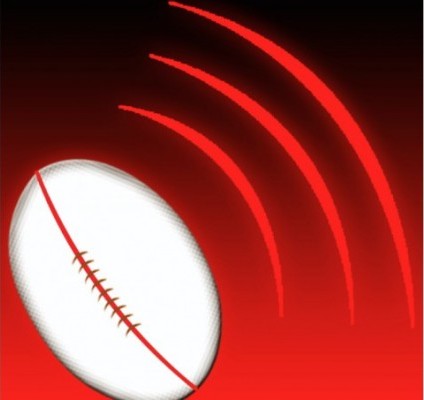Trans Community Weighs in on USA Rugby Rules
Trans Community Weighs in on USA Rugby Rules
One of the greatest aspects about rugby is that it breaks all gender barriers. Regardless if it’s for a men’s or women’s team, the rules, field size, and ball size are the same. Men and women with different experience levels and body weights and sizes are able to compete freely in the rugby world.
However, this concept becomes muddled if a player’s gender is not one they were biologically born with.
“I don’t like being called a lady or a man. They both seem very extreme to me,” University of Georgia wing Jaye Cora said. “So, I just thought, ‘Let’s forget the social constructs and be who I am.’”
Cora identifies with the use of “they” and “them” instead of "he" or "she" - the preferred pronouns have gender neutrality. Cora is gender neutral; they were born a female but don’t feel identified by that term; they like to wear makeup but not shave their legs.
When Cora first joined UGA athletics, they wouldn’t correct anyone who used “she,” “her” pronouns, and eventually, Cora began to resent sports because they didn’t think they’d be respected in this aspect. However, they found rugby and an accepting community. Their coaches and teammates are continually supportive of their gender identity.
Gender Identity Disorder and Disorders of Sexual Differentiation are complicated. Many terms such as transgender, gender neutral, gender fluid, etc. have varying definitions that in and of themselves have sub-definitions. Just as feminism has different branches that identify with it in various forms, and religion has multiple sectors under one large umbrella term, the trans and gender queer communities do as well.
“It’s not this even track that we’d like to think of it as. It’s about how you feel about yourself and how you feel about your gender,” Cora said. “Gender is much more socially constructed and ambiguous.”
World Rugby rules are very cut-and-dry. It leaves the decision to commit a player to the label of “man” or “woman” based on psychological and physiological evaluations. GRR contacted USA Rugby Women’s Pathway Manager Tam Breckenridge to clear up any questions trans players may have for USA Rugby. She led us to World Rugby’s Gender Identity Disorder (GID) and Disorders of Sexual Differentiation (DSD) Policy. Although Breckenridge sent us USA Rugby's policy, the International Rugby Board's policy mirrors that of World Rugby's and USA Rugby's and can be found here.
World Rugby and USA Rugby believe that there’s no problem if someone undergoes sex reassignment before puberty. In the rugby world’s eyes, that person is the gender they have transitioned to. These rules become more intricate once someone undergoes sex reassignment after puberty. A transgender player is only eligible to participate in the gendered team they chose if they meet the following criteria: Surgical anatomical changes have been made to external genitalia and gonadectomy, official authorities have legally recognized them as their transitioned sex, and hormonal therapy has been continuous for at least two years.
For players with disorders of sexual differentiation, the player must be assessed by a medical specialist to determine the player’s hormone levels. The medical reports then go to a panel for risk assessment to determine the effects the player will have on themselves and other players in the gendered team they choose.
It seems like a process of checking “yes” or “no” on a required list. Cora doesn’t believe that it’s all as simple as checking a box on a form or choosing "yes" or "no". Instead, Cora wants to advance the notion that sex is more of a biological label, while gender is psychological one, and both have more than two options.
“People like to demonize it. My testosterone levels are naturally high,” Cora said. “It’s hard to get people who make these rules to understand that nothing is what it seems. We just assume that everyone is just a woman on every women’s team. But, that’s just not plausible because there are a lot of non-binary and trans people out there. They made these rules under the lie that sex is a dichotomy or gender is a dichotomy.”
Cora does agree with the World Rugby openness to the idea that a player should be able to choose what team they belong to. The policy states, “A World Rugby DSD Panel will be appointed to consider each case on its merits to determine whether an individual can play Rugby in their preferred gender group.”
Safety Questions
For safety purposes, World Rugby does not condone coed tackle rugby after a certain age. Yet, Cora believes the player’s skill level should be tested in comparison with other players’ skills on the team. Cora believes testing hormone levels limits players who want to participate for a team they identify with if they don’t meet World Rugby’s policies for that gender, and Cora doesn’t agree with having a “men’s” and “women’s” team.
“In the grand scheme of life, this all doesn’t matter. Rugby is one of the most inclusive sports, so why can’t we just get past this one thing?” Cora said.
Cora is maybe 120 lbs. at their heaviest. Their opposition, who could be biologically born a female, could be over 200 lbs. The hormone and testosterone levels in each player will also be vastly different. Yet despite these extreme physical differences, Cora is still expected to make the tackle. So for them, what would be the difference between Cora tackling a player biologically born a woman who is 200 lbs., and Cora tackling a transitioned woman who is Cora’s weight, but might not meet the hormone levels USA Rugby requires to be deemed a female player?
“We’re making a lot of assumptions when we say that someone taking hormones has to play on a certain team. Everyone has a different level of hormones,” Cora said. “I think a lot of people freak out and are like, ‘Oh, if you start taking hormones, you’re going to be way stronger than every else and you’re just going to hulk out and kill all the players. But, I don’t think that’s really the case.”
For Cora and other trans players, the goal is to erase the discomfort society feels towards the trans community due to a lack of education and discussion.
It appears like USA and World Rugby are attempting to open the doors for trans players by having the policies in place, but some players believe they could make that door more accessible by meeting with trans players and opening a discussion.
“It needs to be a conversation that’s more personal instead of a widespread rule that says, ‘You can’t play,’” Cora said. “Maybe it would be valuable to break away from the idea that there are just two categories and have two ‘different’ teams instead of a set men’s and women’s team.”










